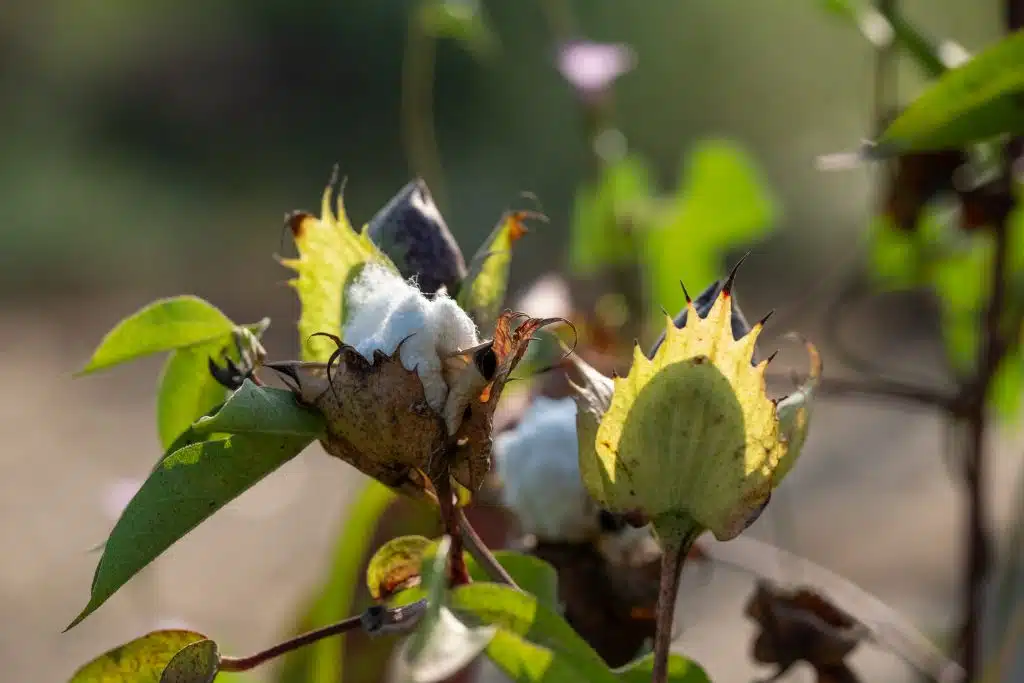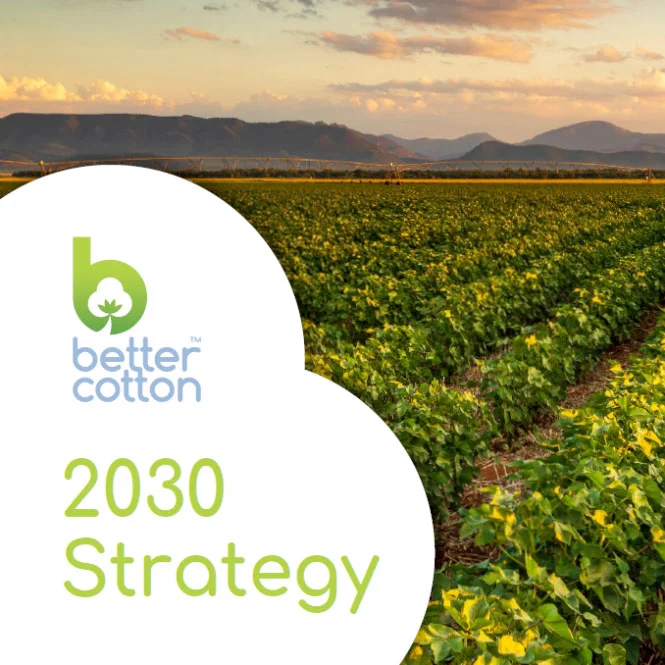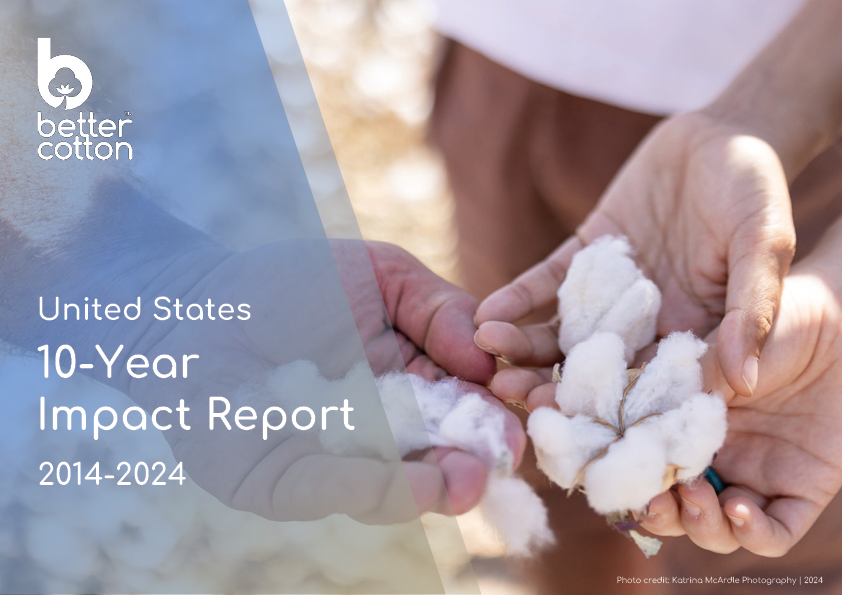- Who we are
- What we do
In just over 10 years we have become the world’s largest cotton sustainability programme. Our mission: to help cotton communities survive and thrive, while protecting and restoring the environment.
- Where we grow
Better Cotton is grown in 22 countries around the world and accounts for 22% of global cotton production. In the 2022-23 cotton season, 2.13 million licensed Better Cotton Farmers grew 5.47 million tonnes of Better Cotton.
- Our impact
- Membership
Today Better Cotton has more than 2,700 members, reflecting the breadth and diversity of the industry. Members of a global community that understands the mutual benefits of sustainable cotton farming. The moment you join, you become part of this too.
- Associate Membership
- Civil Society Membership
- Producer Organisation Membership
- Retailer and Brand Membership
- Supplier and Manufacturer Membership
- Find Members
- Member Monitoring
- Better Cotton Platform
- myBetterCotton
- Resources – Better Cotton Conference 2022
- Complaints
- Whistleblowing
- Safeguarding
- Get Involved in the Better Cotton Programme
- Thank you for contacting us
- Better Cotton’s Data Privacy Policy
- Log in
- Members’ Area
- Request for Proposals
- Better Cotton Cookie Policy
- Web Reference
- Measuring Cotton Consumption
- How to Implement the Chain of Custody Standard
- Resources – Better Cotton Conference 2023
- Certification Bodies Old
- Latest
- Sourcing
- Latest
The founding premise of Better Cotton is that a healthy sustainable future for cotton and the people that farm it is in the interests of everyone connected with it.
Let us help you find what you’re looking for
Results for {phrase} ({results_count} of {results_count_total})Displaying {results_count} results of {results_count_total}


By Leyla Shamchiyeva, Senior Decent Work Manager at Better Cotton
At Better Cotton, one of the core elements of our standard is our Assurance Programme, which ensures that only farms that meet all the core requirements of our Principles and Criteria are able to sell licensed Better Cotton. Our assurance model is critical to ensuring that our Members can source Better Cotton with confidence.
Key to this model is robust monitoring to determine whether farms are complying with our requirements, and a recent monitoring initiative in Uzbekistan provides a great illustration of how our unique approach works to drive continuous improvement.
Once infamous for its labour issues, our programme in Uzbekistan is now a testament to the power of dedicated monitoring and a commitment to decent work. Let’s take a look at how Better Cotton contributed to the cause.
The Challenge and Better Cotton’s Approach
Uzbekistan’s historical struggles with state-sponsored forced and child labour in cotton production are well-documented, and this was a key focus as we set up our programme in the country. It is essential that we are able to verify that farms in the country are meeting our requirements around decent work, which are based on the International Labour Organization’s (ILO) fundamental principles and rights at work, including freedom from child, forced and compulsory labour.
To achieve this, we introduced enhanced decent work monitoring alongside our regular licensing assessment. This dual approach aimed to address the concerns lingering concerns about forced labour in Uzbekistan’s cotton sector and ensured that only fair labour practices were being implemented.
In-Depth Monitoring and Methodology
The recent monitoring initiative in Uzbekistan was a rigorous process. It involved semi-structured interviews with over 1,000 workers across 12 farms in 7 provinces, providing a diverse and in-depth perspective of the labour situation on the ground.
This process was not only about checking compliance but also understanding the everyday realities of the workers, their challenges, aspirations, and complaints.
Findings and Outcomes
The monitoring findings were illuminating – we found no evidence of systemic state-imposed forced labour or child labour. Our approach went beyond merely identifying labour violations, though. We explored a range of decent work issues, including fair pay, working conditions, and workers’ rights, ensuring a holistic assessment of labour practices.
Although it’s positive that forced labour and child labour have been successfully eradicated from Uzbekistan, Better Cotton’s goal is to also ensure there aren’t any other blind spots when it comes to labour rights.
Proactive Measures and Continuous Improvement
When issues such as wage delays or health and safety concerns were identified, Better Cotton acted swiftly and minor issues were resolved through direct dialogue with farm management. We will ensure that farm workers continue to be compensated fairly through continued decent work monitoring. We envisage that this will initially be carried out annually, with a view to ultimately taking a risk-based approach, which will be triggered when we become aware of an emerging risk.
If found, more serious concerns would be escalated to the labour inspectorate. Better Cotton continues to endorse the ILO’s work to strengthen the capacities of the labour inspectorate, demonstrating our commitment to not just identify but actively address labour issues.
Better Cotton’s Assurance System and Its Importance
Our assurance approach in Uzbekistan is crucial for demonstrating the credibility of our system to the global market and to our Members. Coupled with the launch of our traceability solution, which enables our Members to track Traceable Better Cotton to the sourcing country, the robustness of our monitoring and the transparency of our processes provide confidence for those looking to source licensed Better Cotton from Uzbekistan.
This initiative, carried out in collaboration with the Uzbekistan government, works in unison with our sustainability roadmap for Uzbekistan.
Future Directions and Call to Action
The journey does not end here. We are continually refining our methods and expanding our reach to ensure that every cotton farm in Uzbekistan, and beyond, adheres to our high standards.
Better Cotton Members will have the chance to learn more about our programme in Uzbekistan at our upcoming meeting in Tashkent on December 12, which will convene a wide range of stakeholders, including international organisations, embassies, government, industry actors, civil society, human rights activists, and retailers and brands. This event will offer deeper insights into the transformative changes in Uzbekistan’s cotton sector and our future plans. Keep an eye out for more information about the outcomes of the event in the coming days.


